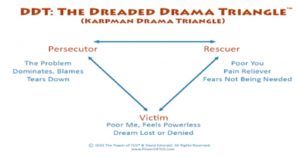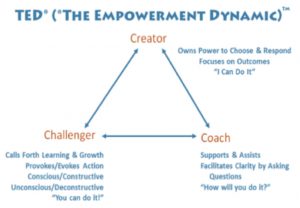Tips and coping strategies from week 4 of the Addiction Recovery workshop with therapist Nicki Line.
Our brains are hardwired to find the negative in our lives. It is a survival mechanism to find the threats. But we can do a few small things daily to help rewire the brain to find more balance. We can do this by taking note of some positive things in our daily lives and practicing gratitude daily.
Here are some prompt ideas for positivity and gratitude. We can practice by daily journaling, acknowledging these things with another person, or simply answering these prompts to ourselves!
What made you smile today?
What went well for you today?
What made you laugh today?
Did you accomplish something today?
Did something go better today than it did yesterday?
What are things you are grateful for?
Did you see someone else do something good for someone today?
What gave you hope today?
Did you have a moment of peace today?
What made you feel good about yourself?
Who is someone you are happy to have in your life?
What do you enjoy about your work?
What is something that makes your life easier?
What is a part of your daily routine that you enjoy?
Here’s a bit of information on the benefits of gratitude incase you’re interested:
https://www.forbes.com/sites/amymorin/2014/11/23/7-scientifically-proven-benefits-of-gratitude-that-will-motivate-you-to-give-thanks-year-round/#30cf8fb7183c
https://time.com/5026174/health-benefits-of-gratitude/
If you are interested in a daily guided journal for gratitude here are some options from amazon:
https://www.amazon.com/Gratitude-Journal-gratitude-mindfulness-productivity/dp/108063133X/ref=sr_1_1_sspa?dchild=1&keywords=daily+gratitude+journal&qid=1586183145&sr=8-1-spons&psc=1&spLa=ZW5jcnlwdGVkUXVhbGlmaWVyPUEzSzIxU0xQNkhCWFlJJmVuY3J5cHRlZElkPUEwMTQ2MDEwMzdNQ0YyVURZS05YTyZlbmNyeXB0ZWRBZElkPUEwOTE0MzgwMUtQT0s0TU5aOFkyQiZ3aWRnZXROYW1lPXNwX2F0ZiZhY3Rpb249Y2xpY2tSZWRpcmVjdCZkb05vdExvZ0NsaWNrPXRydWU=
https://www.amazon.com/Good-Days-Start-Gratitude-Cultivate/dp/1976436184/ref=sr_1_2_sspa?dchild=1&keywords=daily+gratitude+journal&qid=1586183159&sr=8-2-spons&psc=1&spLa=ZW5jcnlwdGVkUXVhbGlmaWVyPUE3TFZWWVFQMTE3OFgmZW5jcnlwdGVkSWQ9QTA5MDg5MjgyRzRSVzhMMFNXWldaJmVuY3J5cHRlZEFkSWQ9QTAzOTM1NzUyMUk5QlpFVlM1VklIJndpZGdldE5hbWU9c3BfYXRmJmFjdGlvbj1jbGlja1JlZGlyZWN0JmRvTm90TG9nQ2xpY2s9dHJ1ZQ==
ROLES IN THE ADDICT FAMILY
The addict
The Enabler- The enabler is the family member who steps in and protects the addict from the consequences of their behavior. The motivation for this may be to protect the addict, or to reduce anxiety, or avoid conflict within the family system.
The Hero- The hero is the family member who attempts to draw attention away from the addict by excelling and being exceptionally “good”. Through their own achievements, the hero tries to bring the family together and create a sense of normalcy. This role is usually taken on by the eldest child, as they seek to give hope to the rest of the family. Unfortunately, a driving need to “do everything right” tends to put an extreme amount of pressure on the hero, leaving them highly anxious and susceptible to stress-related illnesses later in life.
The Scapegoat- The scapegoat is just what you would expect: the one person who gets blamed for the whole family’s problems. This role tends to be taken on by the second oldest child; they offer the family a sense of purpose by providing someone else to blame. They voice the family’s collective anger, while shielding the addicted parent from a lot of blame and resentment.
The Mascot- The mascot tries to deflect the stress of the situation by supplying humor. This role is usually taken on by the youngest child. Providing comic relief is also the mascot’s defense against feeling pain and fear himself.
The lost child- The lost child role is usually taken on by the middle or youngest child. They’re shy, withdrawn, and sometimes thought of as “invisible” to the rest of the family. They don’t seek (or get) a lot of attention from other family member. Lost children generally may put off making decisions, have trouble with forming intimate relationships, and choose to spend time on solitary activities as a way to cope.
GROUNDING TECHNIQUES
Here are some ideas for grounding techniques:
- Hold a piece of ice and focus on the sensations
- Put a handful of salt in your mouth
- Sour candy such as war heads, sour patch kids, etc.
- Place your head in a bowl of cold water.
- Rub some scented lotion on your hands, focusing on the way it feels and smells as you work it into your skin.
- Use a water mister to spray your face and/or chest.
- Pick a hand and tap each finger with your thumb, starting with your index finger and continuing down. Go back and forth until you feel grounded.
- Keep a bead, pebble, stress ball, a small piece of cloth, or another object of your choice in your pocket and roll it around in your hand(s) when you need to get grounded. You can also use a bracelet or necklace.
- Run your hand slowly and gently over the carpet or the fabric of a piece of furniture or clothing and notice how it feels when you rub it in one direction versus the other.
- Put a piece of chocolate in your mouth. Experience the texture, flavor, and feel as it slowly melts.
- Stretch your arms up over your head as high as you can, then out to your sides, finally pulling your elbows back as far as you can behind your back. Repeat. Think about your muscles flexing and feel their strength.
- Hug your favorite stuffed animal, a comfy blanket, or a pillow.
- Take off your shoes and push your toes into the floor or ground.
- Bite into a lemon or take a sip of lemon juice.
- Find something in the room that starts with A, then B, then C, and so on.
- Count backward from 100.
- Put on your favorite song and really concentrate on the words, the music, and the way it all makes you feel.
- Write how you’re feeling in a journal that’s designated for grounding and use your favorite pen. Notice how the pen feels in your hand and the smoothness of how it writes on the paper.
- Play a game on your phone or computer.
- Breathe in through your nose slowly and deeply until your lungs are full. Slowly exhale through your mouth until your lungs are empty. Repeat, concentrating on the feeling of your lungs expanding and contracting.
- Pull a mental picture into your mind of your favorite place and imagine you’re there. Think about what you’d be doing if you were really there.
- Go outside and smell the air or the flowers, trees, or leaves.
- Jump up and down.



